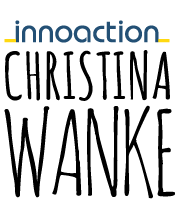You have made it: A new position, a new task begins. You are at the starting line. What matters now? If you think that the ‘first 100 days’ are a grace period, you might be mistaken. On the contrary: it is the very first steps that count. Onboard coaching supports you in setting the course for future success. Which particular topics need to be carefully considered?
The first day in the new position. It would be best if you confidently tackled the new terrain. You, as a manager or specialist with a proven track record. You will face questioning, scrutinizing, hesitant, or even skeptical glances – those of employees, colleagues, and your supervisor.
In this situation, your inner world may not quite match the external appearance you expect of yourself. Here and there is a feeling of insecurity. Which of your previous recipes for success are still suitable from now on?
Onboard coaching can do much to help you find clarity for yourself in the initial phase that is critical to success. The clearer you are with yourself, the more confident and credible you can take action and gain the necessary respect. Without falling into activism, you use the training period to achieve your goals and gain the necessary acceptance, thanks to a well-considered approach.
Among the central questions of an ‘onboarding’ are:
- How do you go about getting to know your environment in detail? This includes not only facts, but also people and relationships. It is about getting to understand the dynamics, for example by means of a so-called stakeholder analysis.
- Your personal profile: Which attributes are decisive for you, and which ones are specific to your target group? This question can also be answered well with a stakeholder analysis.
- Reflection on your new role: Ask yourself these specific questions: ‘How can I be successful here? What are the game rules in this new context? Which factual and personnel parameters are critical?
- Dealing with contradictions and enduring tension areas are demanding positions; the more consciously you focus on these factors, the more constructively you can deal with them.
- Set priorities: Focus is not only important with regard to the results to be achieved. Focus is also crucial when dealing with your own resources. Especially now, when you are additionally challenged. What do you use your precious time and energy for? This is where it pays to invest thinking time and look for leverage, and then do what makes an impact.
Onboarding also means a transformation for yourself. It involves tackling new things as well as letting go of the past – both are challenging brainwork and mindset processes.
In the sense of self-coaching, three questions can help you in the transition phase to more inner and outer clarity:
Answer the following questions for yourself at the beginning of the first 100 days. Your answers will contribute substantially to your first confident performances:
- What do I leave behind? (because it is no longer relevant, meaningful or possible…)
- What do I take with me, and will I keep? (because it applies to me and my working style in general, e.g., my personal values or principles for my behavior …)
- What am I doing that is new or different? (because it fits the new environment because the new role or challenge requires it…)
Especially during a new start, you are almost exclusively dependent on yourself, simply because you cannot yet assess the environment well enough. In these circumstances, the confidentiality of a coaching conversation can be especially effective and strengthening. If you are interested in an exchange with a thinking partner, please contact me without obligation.


